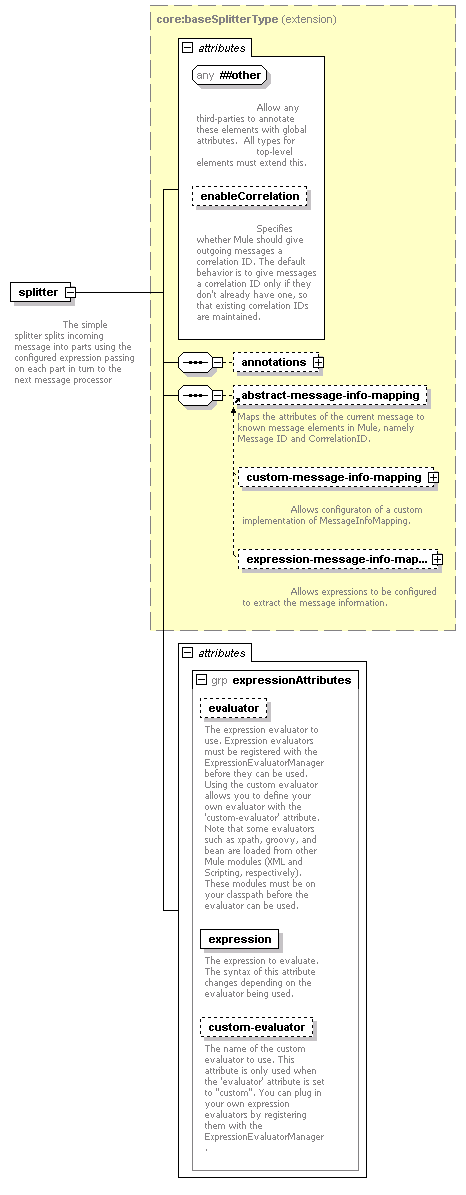
Namespace: |
|
Type: |
|
Content: |
complex, 4 attributes, attr. wildcard, 2 elements |
Subst.Gr: |
|
Defined: |
globally in mule.xsd; see XML source |
Used: |
at 1 location |

XML Representation Summary |
|||||||||||||||
| <splitter | |||||||||||||||
|
|||||||||||||||
| {any attribute with non-schema namespace} | |||||||||||||||
| > | |||||||||||||||
|
|||||||||||||||
| </splitter> | |||||||||||||||
Type Derivation Tree |
| <xsd:element name="splitter" substitutionGroup="abstract-intercepting-message-processor"> <xsd:complexType> <xsd:complexContent> </xsd:extension> </xsd:complexContent> </xsd:complexType> </xsd:element> |
| XML schema documentation generated with DocFlex/XML RE 1.8.5 using DocFlex/XML XSDDoc 2.5.0 template set. All content model diagrams generated by Altova XMLSpy via DocFlex/XML XMLSpy Integration. |